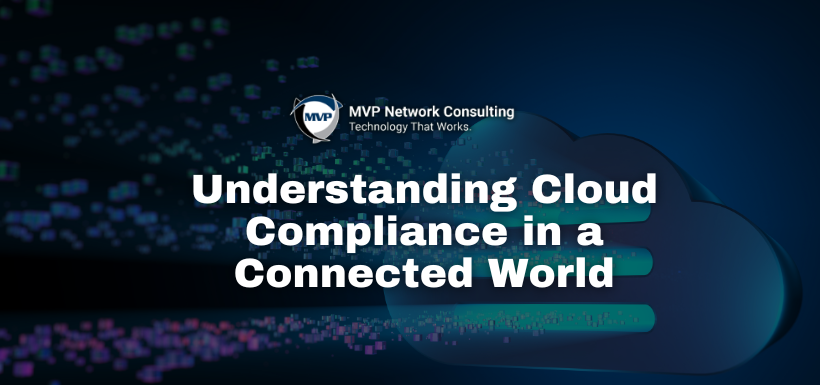Understanding Cloud Compliance in a Connected World

Ikram Massabini
October 10, 2025

Cloud computing has revolutionized the way organizations store, access, and protect their data. It combines flexibility, innovation, and cost efficiency to help businesses grow faster and work smarter. However, these benefits also come with an important responsibility: maintaining compliance in an increasingly complex regulatory environment.
Cloud compliance is more than just meeting technical requirements. It involves understanding and following the legal and security standards that govern how sensitive information is handled. When businesses fail to comply, they risk fines, reputational damage, and stricter oversight. With modern privacy regulations such as HIPAA and PCI DSS, organizations must stay alert and ensure their cloud environments meet industry expectations.
Why Compliance Matters
Every organization that uses cloud services has a duty to protect data from misuse or exposure. The challenge is that compliance obligations can differ depending on where data is stored or transmitted. A file saved on a server in another country might be subject to entirely different laws. Knowing where your data resides, how it moves, and who has access to it is crucial for maintaining compliance and building trust.
General Data Protection Regulation (GDPR) – European Union
The GDPR is one of the strongest privacy laws in the world. It applies to any organization that collects or processes data belonging to EU residents, no matter where the company is based. Compliance requires clear consent practices, secure storage, and transparency about how information is used.
Health Insurance Portability and Accountability Act (HIPAA) – United States
HIPAA safeguards the confidentiality and integrity of patient health information. Any cloud provider handling electronic protected health information (ePHI) must implement security controls such as encryption, access management, and regular audits to maintain compliance.
Payment Card Industry Data Security Standard (PCI DSS)
PCI DSS governs the handling of credit card data. Businesses that process, transmit, or store payment information must follow strict protocols for data encryption, access control, and vulnerability testing to prevent financial fraud and breaches.
Federal Risk and Authorization Management Program (FedRAMP) – United States
FedRAMP provides a consistent security framework for cloud products and services used by U.S. government agencies. Cloud providers must undergo detailed evaluations to prove that their systems meet the federal government’s cybersecurity and data protection standards.
ISO/IEC 27001 – International Standard
ISO/IEC 27001 defines best practices for creating and maintaining an Information Security Management System (ISMS). It helps organizations establish systematic policies to secure information assets and demonstrate compliance with international standards.
Building a Culture of Compliance
Keeping cloud environments compliant is not a one-time effort. It requires continuous monitoring, periodic assessments, and transparent communication with technology partners. Selecting providers that follow recognized compliance frameworks and documenting how your organization manages data are essential steps toward long-term success.
MVP Network Consulting helps businesses across Buffalo and Western New York navigate today’s cloud compliance challenges. Our experts ensure your systems meet industry regulations, safeguard sensitive data, and stay resilient against evolving security threats. Connect with our team today to keep your business compliant and confident in the cloud.
Resources:
Criminal Proxy Network Infects Thousands of IoT Devices
